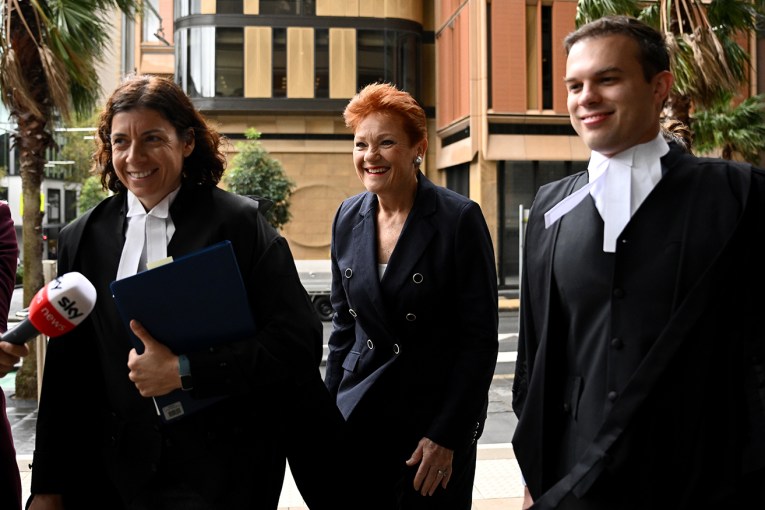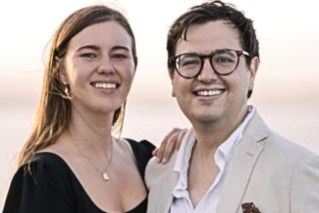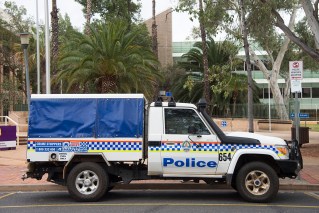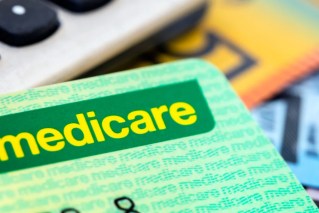Coronavirus: Australia’s COVID vaccine rollout accelerated amid fears over mutant UK strain

The federal government hopes to vaccinate four million Australians by April, but a leading epidemiologist says the nation still needs to invest in more vaccines, raising fears our stocks may not be up to the job of stopping future outbreaks.
New South Wales and Victoria both recorded zero new COVID cases on Thursday, but state and federal leaders will meet on Friday for an emergency national cabinet meeting as authorities look to plug holes and prevent the mutant UK strain from entering the country.
Vaccine fast-track
The federal government has changed its vaccine timetable twice this week alone.
Chief medical officer Professor Paul Kelly said on Monday “late March” was the current plan, before Health Minister Greg Hunt on Wednesday said “early March”.

Greg Hunt outlines the roadmap. Photo: AAP
But on Thursday, Prime Minister Scott Morrison – flanked by both men at a Parliament House press conference – confirmed Australia’s long-awaited national vaccine rollout plan would begin in “mid to late February”.
“We have set out cautious timetables … we are seeking to better those timetables. We don’t want to make promises that we can’t keep,” the PM said.
Mr Morrison said the “target” was to vaccinate four million people by the end of March, and the rest of the nation by October.
Only on Tuesday had Mr Morrison slammed Labor leader Anthony Albanese’s calls to accelerate the vaccine rollout as “dangerous” and “naive”.
But on Thursday, the PM said February was the new timetable, with the “gradual improvement” in timing due to an expedited Therapeutic Goods Administration approval process.
“We’ve just worked the system to see how we can improve the timeliness of the delivery of the vaccine,” Mr Morrison said.

The groups to be vaccinated under the roadmap. Photo: Department of Health
“It is moving considerably faster than normal vaccination approval processes would occur in Australia, but without skipping a step, without cutting a corner.”
As expected, health and aged-care workers, those working at international borders and in hotel quarantine, and elderly Australians will be the first to be protected.
They will likely receive jabs of the Pfizer vaccination, at 50 specialised “hubs” nationwide within weeks.
Some 680,000 people will be included in that ‘Phase 1a’ of vaccinations, under the plan.
Phase 1b will inoculate 6.139 million people, including people aged 70 and over, Indigenous Australians over 55, and “critical and high-risk workers” like police, defence, fire and emergency services.
The AstraZeneca vaccine will roll out at more than 1000 sites – like GP offices and medical clinics – after its TGA approval, expected in early February.
Calls for ‘best available vaccine’
The fast-tracking was welcomed, but called a “belated decision” by Labor health spokesman Chris Bowen.
“Scott Morrison and Greg Hunt have spent the last week hysterically claiming that bringing forward the rollout would risk Australians’ health,” Mr Bowen claimed.

Mr Hunt and Mr Morrison with Brendan Murphy and Paul Kelly. Photo: AAP
Mr Albanese said “the government is now doing what it said was impossible just days ago”.
Professor Raina MacIntyre, head of the Biosecurity Program at the Kirby Institute at the University of NSW, said just days ago that waiting until March “may be costly”.
She said the accelerated rollout was “excellent news”, but again called on the government to invest in more vaccines, to prevent another outbreak.
“It is critical we vaccinate everyone working at the international border with the best available vaccine – not just hotel quarantine staff, but also transport staff, aircrew, airport workers. They are the most likely vectors of infection into the community,” Professor MacIntyre said.
“They need high efficacy vaccines like Pfizer or Moderna – the AstraZeneca vaccine will protect them against death and hospitalisation, but may not protect well against infection – so they can still get infected and set off a community epidemic.”

AstraZeneca is among the vaccine deals. Photo: AAP
Australia has deals for 10 million doses of Pfizer and 54 million of AstraZeneca, as well as 51 million of a Novavax vaccine.
Australia does not have a Moderna deal.
“With just three vaccine deals – and only two of those vaccines imminent – Australia also remains vulnerable to any further failure of vaccine candidates and continued vaccine supply chain pressures,” Mr Bowen claimed.
“Other countries have sensibly hedged their bets by investing in five or six vaccine candidates.”
UK fight considered in emergency national cabinet
Professor MacIntyre had raised concerns that waiting until March for vaccinations could allow a new mutant strain of COVID – like that devastating the UK – to take root in Australia.
The national cabinet of state and federal leaders will gather for a special meeting on Friday, to consider whether Australia needs to further tighten procedures for international arrivals and hotel quarantine.
All of Australia’s recent COVID outbreaks have been linked back, partly or wholly, to breaches in hotel quarantine in Sydney, Melbourne and Adelaide.
State leaders have called for more pre-flight testing of passengers, and tighter quarantine rules.








